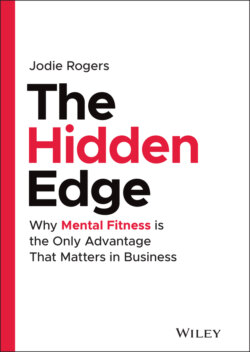Читать книгу The Hidden Edge - Jodie Rogers - Страница 14
2 The Business Case for Investing in Mental Fitness
ОглавлениеIn this chapter, I build a case for how mental fitness contributes to the bottom line in any organisation. Based on data from a variety of sources, it can be a valuable tool for HR and well-being practitioners or managers who need to make the case in their own organisations.
The World Health Organization (WHO) defines good mental health as follows:
‘A state of wellbeing in which every individual realises his or her own potential, can cope with the normal stresses of life, can work productively and fruitfully, and is able to make a contribution to her or his community.’
In other words, good mental health isn't just the absence of ill health, just as good physical health isn't the absence of disease. Many arguments have been made (and often fallen on deaf ears) for the importance of addressing mental illness in the workplace and enhancing well-being.
This work is foundational and fundamentally important. But there is another opportunity here. What if we went beyond illness and wellness and also began to call for a focus on mental fitness in the workplace? As laid out in the last chapter, being mentally fit is about strengthening and enhancing, and just as peak physical fitness might see you through a marathon, peak mental fitness can help people to achieve extraordinary things – to become adaptable, more engaged, more resilient, and more creative in their work. With those sorts of results, why isn't everyone doing it?
Well, because the whole topic of ‘mental’ anything is largely still taboo. But beyond that, it's intangible in many ways. How do we know if we are doing it right? How can we convince stakeholders to invest in something we can't really measure? What IS the ROI? Do we know how it affects the bottom line? Is there a business case that lays out all the facts and figures in a simple, digestible way that I can use to first convince myself, then convince my company? Well, the answer is YES – this is it. In this book, we give you the executive summary version. If you want to access the comprehensive business case, you can download it (along with the summary version) at www.symbiapartners.com/mentalfitnessresources.
What I've done is look at the argument in a number of different ways:
What is the cost of doing nothing? For example, what is the negative impact of acute stress, anxiety, burnout, and depression (mental illness) on business?
What's the benefit of doing something more? For example, how does investing in mental wellness positively affect engagement, retention, and productivity?
Finally, I look at the further positive impact of investing in mental fitness – strengthening and enhancing the mental and emotional well-being of our workforce to positively impact performance.
